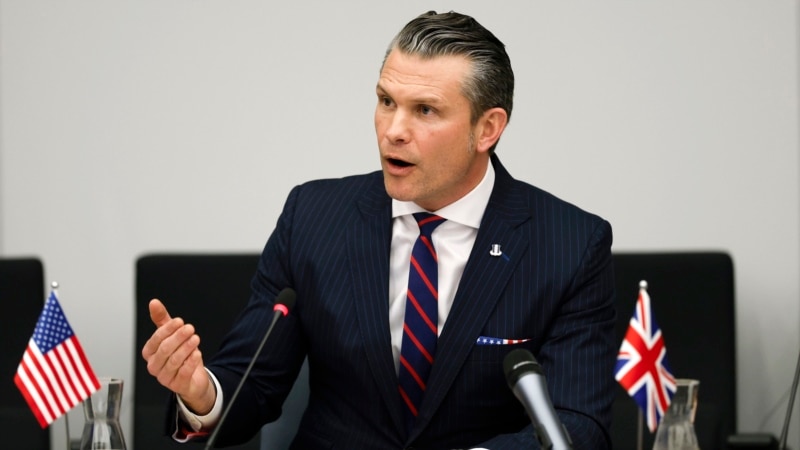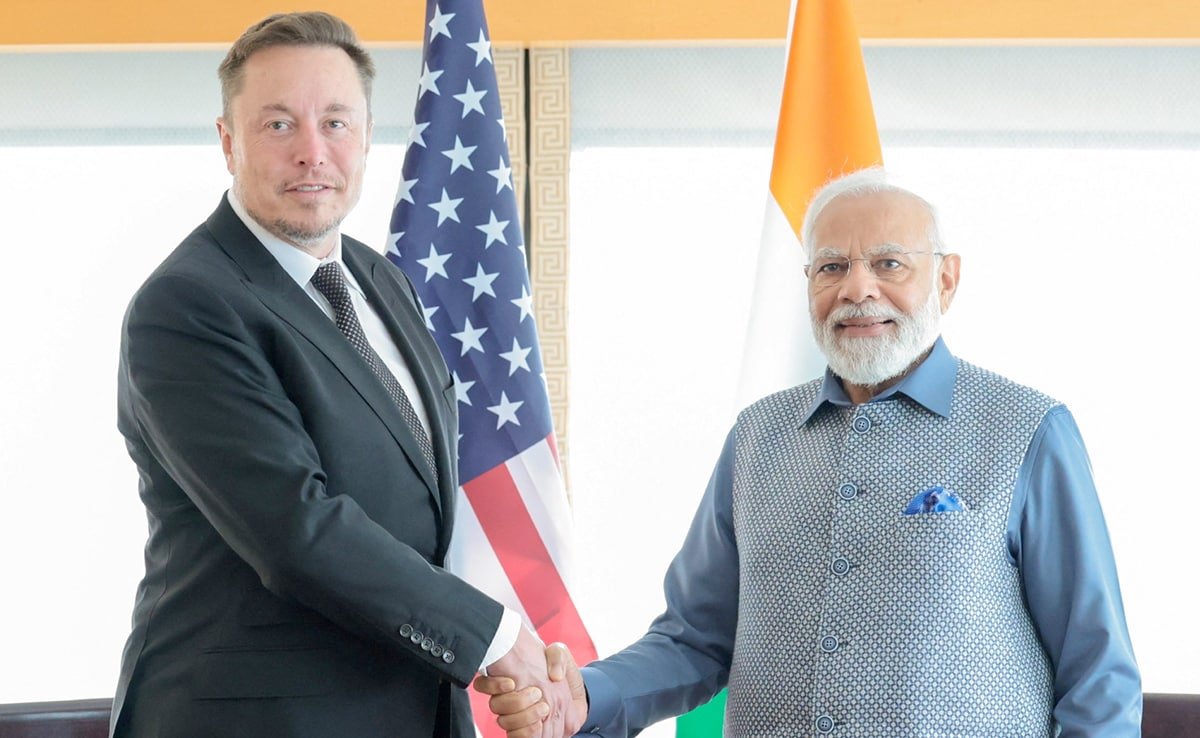
U.S. Defense Secretary Pete Hegseth told NATO military allies on Wednesday that Ukraine’s hoped-for return to its 2014 borders is an “unrealistic objective,” and that the United States does not believe that Kyiv membership in NATO is a “realistic outcome” of a negotiated end to Russia’s three-year war on Ukraine.
Speaking in Brussels at NATO headquarters, Hegseth told his fellow defense chiefs, “We want, like you, a sovereign and prosperous Ukraine. But we must start by recognizing that returning to Ukraine’s pre-2014 borders is an unrealistic objective. Chasing this illusionary goal will only prolong the war and cause more suffering.”
No peace talks have been scheduled, but Hegseth said any durable conclusion to the war must include “robust security guarantees to ensure that the war will not begin again.”
“The United States does not believe that NATO membership for Ukraine is a realistic outcome of a negotiated settlement,” he said, which would invoke the military alliance’s mutual defense provision among NATO’s 32 member nations that requires each of them to help defend each other when they are attacked.
Kyiv has long sought NATO membership, and the alliance’s other member nations have said they are committed to it, but not while the war rages on.
Instead, Hegseth said security guarantees for Ukraine should be backed by “capable European and non-European troops.”
“If these troops are deployed as peacekeepers to Ukraine at any point, they should be deployed as part of a non-NATO mission, and they should not be covered under Article 5,” he said, referring to the alliance’s mutual defense clause.
Russia annexed Ukraine’s Crimean Peninsula in 2014, supported pro-Russian separatists fighting against Kyiv’s forces in eastern Ukraine in the ensuing years and then launched a full-scale invasion in February 2022. It now controls about 20% of Ukraine’s pre-2014 territory.
Before taking office to begin his second term in the White House, U.S. President Donald Trump said he would resolve the Russia-Ukraine conflict even before being inaugurated. More recently, his aides say he hopes for a peace pact in the first 100 days of his new term, roughly by the end of April.
Under former President Joe Biden, the U.S. was Ukraine’s biggest military benefactor. Trump has often voiced skepticism of continued U.S. support, refusing to say at a political debate last year that he wanted Ukraine to win the war.
Now Trump appears intent on getting Europe to assume most of the financial and military responsibilities for the defense of Ukraine. He also has suggested that going forward, Ukraine should pay for continued U.S. support by giving the United States access to its rare earth minerals needed to produce technology products.
“Members of this [Ukraine] contact group must meet the moment,” Hegseth said to the assembled group of about 50 member countries that have provided $126 billion worth of weapons and military assistance to Ukraine since Russia’s 2022 invasion.
“We hear you,” British Defense Secretary John Healey said in response to Hegseth’s opening remarks.
Hegseth said that NATO members must increase their defense spending to 5% of their national economies, a figure that no NATO country currently allocates.
The U.S. is at 3.4%, with Poland the highest NATO country at 4.12%. The current NATO defense spending goal is 2% of each country’s national economy, a figure that 23 of the 32 countries meet, up from six in 2021 after Trump chided other NATO countries about the issue during his first presidential term.
Hegseth would not commit the U.S. to the 5% figure, saying it was up to Trump.
“We live in fiscally constrained times,” Hegseth said, and need to be responsible with taxpayer money.
But the U.S. defense leader said, “The United States will no longer tolerate an imbalanced relationship [among NATO members] which encourages dependence [on the U.S.]; rather our relationship will prioritize empowering Europe to own responsibility for its own security.”
NATO leaders are expected to agree on new spending targets at their next planned summit, in The Hague, Netherlands, June 24-26.
Some information for this report came from The Associated Press and Reuters.








